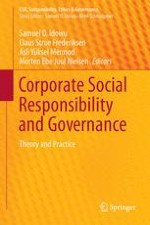This book deals with the role of international standards for corporate governance in the context of corporate social responsibility. Based on the fundamentals of moral theory, the book examines governance and CSR in general, addressing questions such as: Is “good governance” not affected by moral concerns? How do the principles and practices of CSR standards adhere to or conflict with insights from business ethics and moral theory? To what extent do the standards and governance models provide normative guidance? Do the standards and governance guidelines provide an adequate means of benchmarking and auditing? Are these standards a help or a hindrance to stakeholder engagement and transparency? The book provides insightful and thought-provoking answers to these and many other important questions concerning CSR standards, and offers a valuable resource for practitioners, academics and students at business schools and other institutions.
